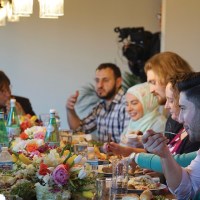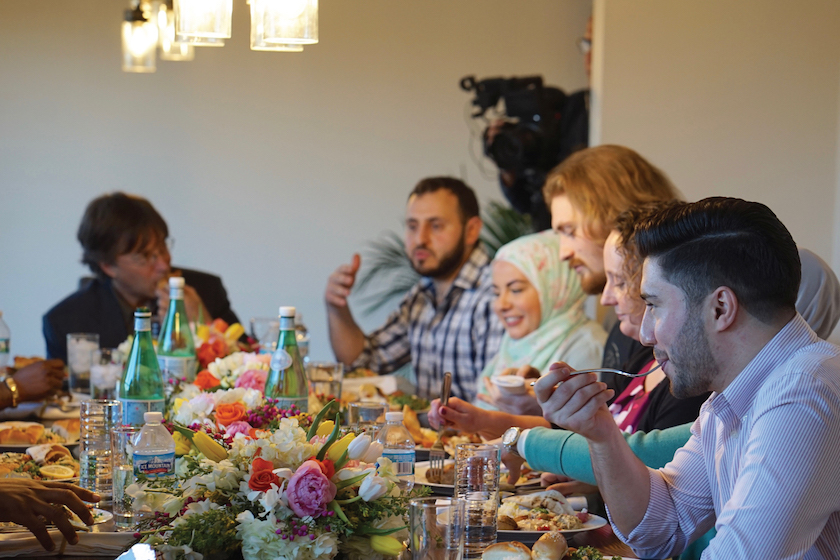You know those internet videos and memes about Muslims that are meant to generate fear?
Whenever I saw one, I always found myself yelling at my computer—“Go meet a Muslim! Ask them about their religion! I’m sure Muslims aren’t as bad as you think they are!”
Then one day it hit me: I don’t actually know any Muslims. Not one. That needed to be remedied.
![]()
While I adore the place I call home, it’s a homogenous city. We’re all pretty much the same color, make roughly the same amount of money, vote along the same party lines, and we all root for the Detroit Red Wings. But, I also live less than 20 miles from Dearborn, Michigan—the city with the highest percentage of Muslims in America.
Then, a Facebook friend sent me an invitation to have dinner with a Muslim couple I had never met before.Amanda Saab and her husband, Hussein, live about 45 minutes from me and regularly open their home and hearts to strangers who have questions or concerns about Muslims.
During these “Dinner with Your Muslim Neighbor” events, they host a handful of people around their handmade dining table and enjoy a homemade dinner. Then they open themselves up to questions from their guests. “No question is off limits,” they told us all at the beginning of the evening. They were open, honest and vulnerable.
I wondered… Would I be that open if I were in their shoes?

Hearts were opened, thankfulness was abundant, and questions were answered. I got to see firsthand how eating together changes people and how those changes stay with you long after you’ve left the table.
As I drove home, I reflected on what made the night feel so special. I kept going back to the diversity around that table. We each came from different cities and represented a wide variety of race, gender, socioeconomic statuses, religious convictions, and political beliefs.
But while we were all very different, we also had much in common. And those commonalities were way more meaningful than our differences. We all want something better for humanity. We all desperately want people from different cultures to not only tolerate each other but seek to understand and love one another. 
That dinner taught me firsthand that once you get to know someone, they can no longer be other. Because of the meal we shared, I went from looking at an amorphous group of them to seeing a group of us.
Amanda and Hussein realize that by bringing people together in person—into the same room, around the same table—they can bring people together on a deeper level.
Simply by opening up their home, they began the process of tearing down walls and building up bridges. Their love was contagious and I drove home excited to step out in courageous vulnerability to tear down walls and build bridges in my own community.
Someone has to be the first one to step out in vulnerability. Amanda and Hussein had the courage to take that risk. Do you?
Photos courtesy of MuslimNeighbor


